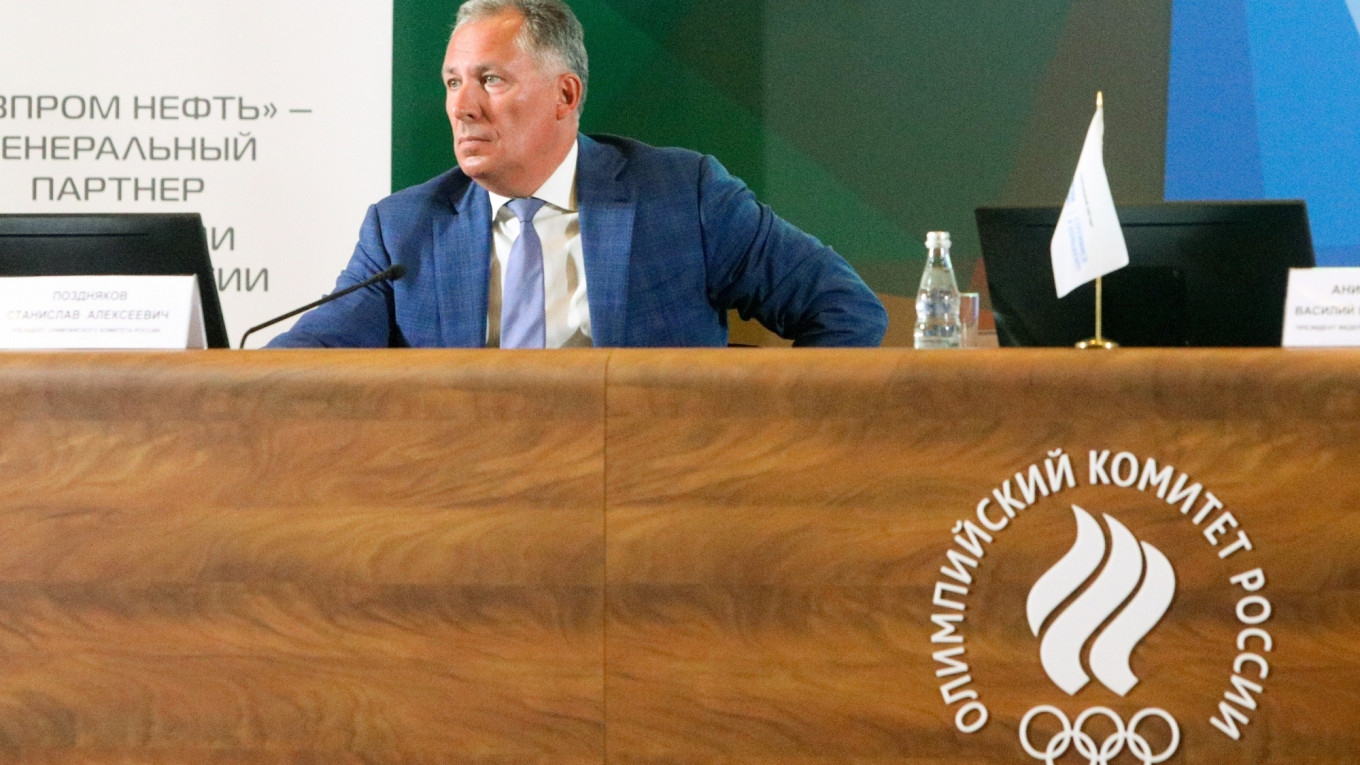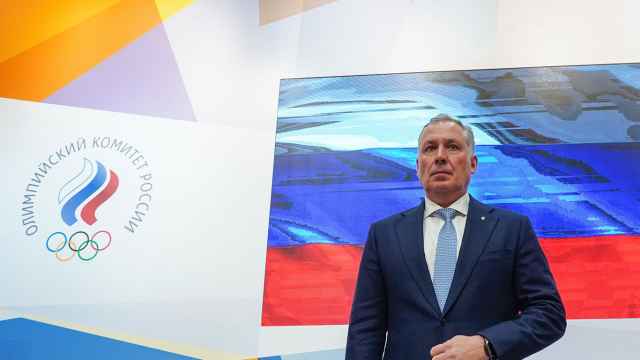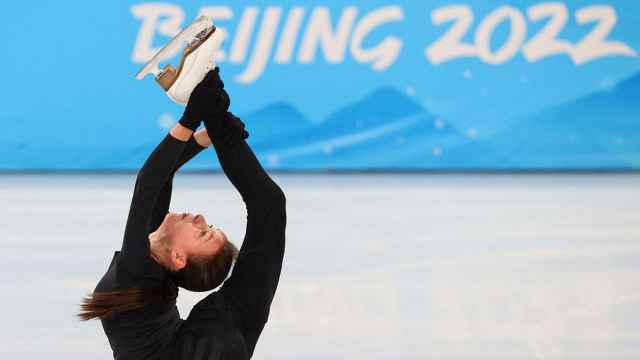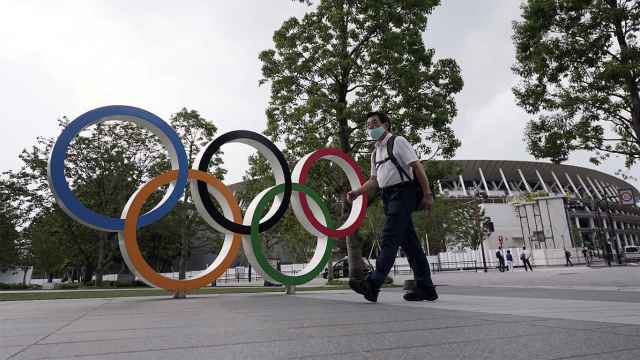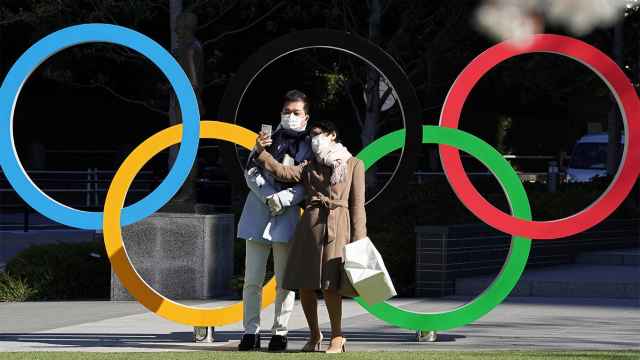The head of Russia's Olympic Committee, an organization weighed down by a protracted doping scandal, believes his athletes are headed to the Tokyo Games with an unfair disadvantage.
Still, Stanislav Pozdnyakov wants his Olympians to haul home dozens of medals.
"The national flag and the national anthem are additional motivating factors... for any athlete," he told AFP in an interview in Moscow ahead of the Games.
"Of course, we'll have to perform without these missing elements. But the team is ready to compete for places on the podium. We're anticipating to win 40 to 50 medals."
Pozdnyakov's goal about shoulders up to the 56 podium spots Russian athletes won in Brazil five years ago, but pales in comparison to the London Games when they returned with 82.
That's because 2012 was a different era of Russian sports, before the country was embroiled in a doping scandal whose embarrassing fallout years later means there will be no Russian logo or anthem in Japan.
These penalties ultimately stem from a report published in 2015 by the World Anti-Doping Agency (WADA), which said Russia had instituted a far-reaching system of cheating with tacit approval from the highest levels of government.
Then in 2016, Grigory Rodchenkov, the former head of Moscow's anti-doping laboratory, blew the whistle over state-backed doping at the 2014 Winter Olympics hosted in the Russian Black Sea resort of Sochi.
The revelations would see Russia banned from major sporting events for four years and its athletes stripped of medals — the impressive medal count from London reduced to 67 over the doping claims.
The sanctions were reduced at the end of 2020 by the Court of Arbitration for Sport (CAS), a decision that infuriated some observers but was hailed as victory in Russia.
'Protect future generations'
So even though Russia's anthem, flag and even its name are banned from major competitions until December 2022, its clean athletes are allowed to compete.
Pozdnyakov still says the fact they are barred from wearing their national colors is "unfair," especially for a new generation of young athletes.
"They have nothing to do with the allegations from 2015," he said.
It is a position oft-repeated by Russian officials — that a younger cohort of athletes is paying the price for mistakes made by their elders, and that the country has now cleaned up its act.
Senior figures, as high up as President Vladimir Putin, have long suggested the doping scandal is a Western plot to undermine a global sporting powerhouse, but Pozdnyakov said it was time to turn the page.
Striking a conciliatory tone, he praised "collaborative work" carried out by his organization and the International Olympic Committee — efforts he said "make our athletes happy" by allowing them to compete.
He said the sanctions were "excessive," but added: "Life is always based on a kind of compromise and the search for consensus."
In Tokyo, compromise means Russian athletes will compete under the name of the Russian Olympic Committee, whose symbol comprises a flame adjoined by stripes of red and blue — like the national flag.
The Russian anthem is replaced with music by national icon, composer Pyotr Tchaikovsky, and the official tracksuit will be decorated in Russia's colors.
Pozdnyakov's appointment itself in May 2018 was part of an effort by authorities to restore his organization's credibility.
Unlike his predecessor who was a lawmaker and businessman, Pozdnyakov — a 47-year-old four-time Olympic gold medallist in fencing — is not directly connected to politics.
"My main mission is to protect future generations of Russian Olympic athletes from the problems we face today."
A Message from The Moscow Times:
Dear readers,
We are facing unprecedented challenges. Russia's Prosecutor General's Office has designated The Moscow Times as an "undesirable" organization, criminalizing our work and putting our staff at risk of prosecution. This follows our earlier unjust labeling as a "foreign agent."
These actions are direct attempts to silence independent journalism in Russia. The authorities claim our work "discredits the decisions of the Russian leadership." We see things differently: we strive to provide accurate, unbiased reporting on Russia.
We, the journalists of The Moscow Times, refuse to be silenced. But to continue our work, we need your help.
Your support, no matter how small, makes a world of difference. If you can, please support us monthly starting from just $2. It's quick to set up, and every contribution makes a significant impact.
By supporting The Moscow Times, you're defending open, independent journalism in the face of repression. Thank you for standing with us.
Remind me later.


